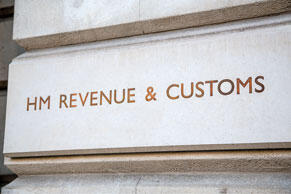2024 Autumn Budget: the highlights
Today we had the first Labour budget since 2010. What are the key takeaways?

Income and personal taxes. In keeping with pre-election promises, there will be no changes to the current bands or rates for income tax, primary Class 1 NI, Class 4 NI or dividends. An unexpected announcement is that the personal tax thresholds will unfreeze from April 2028. It was rumoured that the current rates would be locked in for a further two years. Instead they will now increase annually, likely in line with CPI.
For employees with company-provided cars, the percentage for zero emission and electric vehicles will increase by two percentage points per year in 2028 to 2029 and 2029 to 2030, rising to 9% in 2029 to 2030.
The domicile status will cease to apply for income tax and capital gains tax (CGT) as planned.
Business taxes. A leaked increase in the rate of secondary Class 1 NI was confirmed, with the rate increasing to 15% from April 2025. This was coupled with a reduction in the payment threshold to £5,000 (£96.15 per week). However, to ensure this doesn’t adversely impact smaller employers, the employment allowance will increase to £10,500 – more than double its current level.
Despite significant criticism, the previously-announced application of VAT to private school fees will go ahead. Further details should be available soon.
Capital taxes. The two-tiered system of CGT rates will be retained, but the rates are increased with immediate effect to 18% and 24%, aligning the rates applicable to assets generally with those for residential property. The trust rate increases to 24% accordingly. This applies to disposals made on or after 30 October 2024. The rate applying to carried interest will increase to 32% from April 2025, with further reform promised.
The rate that applies to business asset disposal relief and investors’ relief is increasing to 14% for disposals made on or after 6 April 2025 and from 14% to 18% for disposals made on or after 6 April 2026. The lifetime limit for investors’ relief reduces to £1 million (from £10 million) for disposals made on or after 30 October 2024.
Inherited pensions will be brought within inheritance tax from April 2025. Agricultural property relief and business property relief will be made far less generous by restricting the value that can qualify for relief at 100%. The existing 100% rates of relief will continue for the first £1 million of combined agricultural and business property. The rate of relief will be 50% thereafter, and in all circumstances for shares designated as “not listed” on the markets of recognised stock exchanges, such as AIM.
Other taxes. The stamp duty land tax surcharge for purchases of additional dwellings increases to 5% (from 3%) from 31 October 2024. This also increases the rate paid by companies etc to 17% for residential properties over £500,000.
-
Dodging the 2027 IHT and pension changes
In a little over a year the inheritance tax (IHT) exemption for unused pension savings comes to an end. If you’re married or in a civil partnership, one simple step might save your estate thousands in IHT. What is it?
-
Act now to spread the cost of your tax bill
The deadline for filing your 2024/25 self-assessment tax return and paying the tax you owe is 31 January 2026. However, if you file your tax return early, you may be able to pay through your PAYE code instead. Are you eligible?
-
Working from home tax relief scrapped in Budget
Employees who are required to work from home are currently able to claim tax relief at a flat rate of £6 per week. That's changing from 6 April 2026. What's the full story?